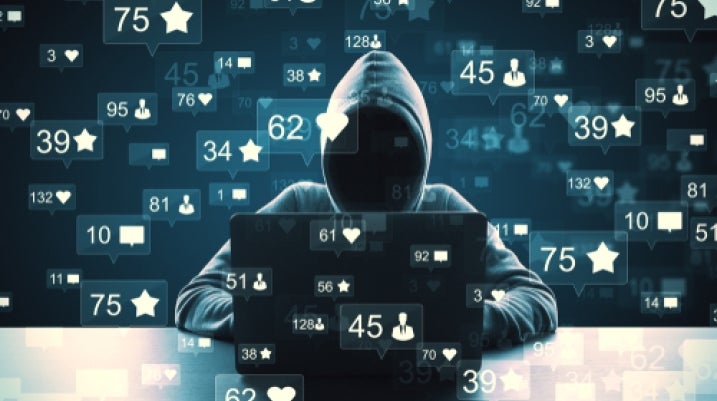How to Protect Your Social Media Accounts From Being Hacked

A lot of us frequently use social media, and some people spend more time on it than others. But with the use of social media and the sharing of our important details and private information, there is the possibility of being targeted by hackers.
Popular social media platforms include Facebook, Instagram, Twitter, LinkedIn, TikTok and more, and all are prone to potential hacks.
To prevent your social media accounts from being hacked, being aware of how you can protect yourself is key. Here we will provide our top tips for safeguarding your social media.
Be Wary of Unexpected Communication
If you aren’t expecting an email from your social media provider, be wary of any emails that you do receive. There is a high possibility that they may be from a hacker seeking entry and control over your social media account.
A particular hack that has happened to many social media victims is through false communication from hackers pretending to represent the popular social media platform Facebook. The cyberattack begins with a phishing email claiming to be from "The Facebook Team," which warns the user that their account "might be disabled and your page might be removed" due to repeatedly posting content that has been reported as infringing the rights of another Facebook user.
The cyberattack victim is invited to appeal the report by clicking on a link that the "security researchers" claimed would lead to a Facebook post. Within this post, there is another link that will direct the user to a separate website in order to make their "appeal."
As part of the fake appeal process, the user will be asked to provide their sensitive information, including their full name and email address. Before submitting the form, the user is also asked to enter their Facebook password.
All this information is then sent to the attacker, who can use it to log in to the victim's Facebook page, collect information from their account and potentially lock them out of it. If the victim re-uses their Facebook email address and password for other websites and applications, the attacker will be able to access these too.
There is no doubt that phishing attempts like the one above trick people into believing it’s genuine and from the official social media platform, especially from the sense of urgency and concern they create, along with the content containing matching branding. But upon deeper inspection, it’s easy to spot the faults which suggest you are being targeted by hackers.
These phishing emails are often sent from email addresses which are clearly fake and do not relate in any way to the social media platform. Social media platforms, especially large corporations like Facebook, often do not have email addresses ending in @gmail.com, so it’s easy to determine what is real and what is fake.
The language of the email is typically designed to create fear in the victim, scaring them into losing their account. It's unlikely an actual online service will send an email like this, but if you receive a message and do get worried, don't click the link in the email. Instead, log in to the website or directly to the social media platform’s support. If something is wrong with your account, you'll be able to find out there without handing over your password to cybercriminals.
Set Strong Passwords and Frequently Change Them
When you need to set up a social media account or need to reset your password, most platforms will have an indicator point concerning the strength of your password, along with a number of requirements that have to be set in order to set your chosen password. Setting a strong password is crucial for a number of reasons, such as:
- It helps keep your sensitive information secure
- Protects private emails, files and other content you may have
- Prevents an unauthorised individual from entering your account
To set a strong password, you want to make sure it is completely unique, is different from other social media passwords you have, is a good length, has a series of numbers and symbols throughout and does not use personal information or common words.
In addition to setting a strong password for your social media accounts, changing them regularly is recommended, such as every six months.
Set Your Accounts to Private
Having an account that is open to the public means sensitive details like your phone number and email address are easily accessible, allowing third parties to potentially send you phishing emails or potentially use your personal details to work out your passwords to your social media accounts, especially if you use the same password across the board.
Don’t Accept Random Friend Requests
The last thing you want to do is accept connection requests from strangers. They could have malicious intentions and want to attempt to get to know you further in the hope of extracting personal information from you. Accepting friend requests can also allow them to have access to private details such as your telephone number and email address.
Contact Morgan & Morgan Today
Social media is great for staying connected, but if someone hacks your account, it can have serious implications on your life financially. Our team of experts have extensive experience and can help you if you’ve been impacted by a cyberattack.
For further information on how our proficient team can help, contact us today.
Injured? Getting the compensation you deserve starts here.

Injured?
Not sure what to do next?
We'll guide you through everything you need to know.